Is There Such a Thing as Too Much Research?
This month on Dear Writer, we explore the question, ‘Is there such a thing as too much research?’
Research can be hugely overwhelming as an aspiring writer. Common questions include: How much should you do? When do you stop? How much should you put into your book? We have a great discussion about the necessity of researching and the traps of researching ‘too much’.
And stay tuned to listen to our ‘mistakes of the month’. We have some great ones for you this month. And don’t forget, if you have any of your own you’d like to share, get in touch! Or even if you’ve discovered one in *gasp!* a published book you’re reading, let us in on the juicy details and we can all have a laugh about it on next month’s show!
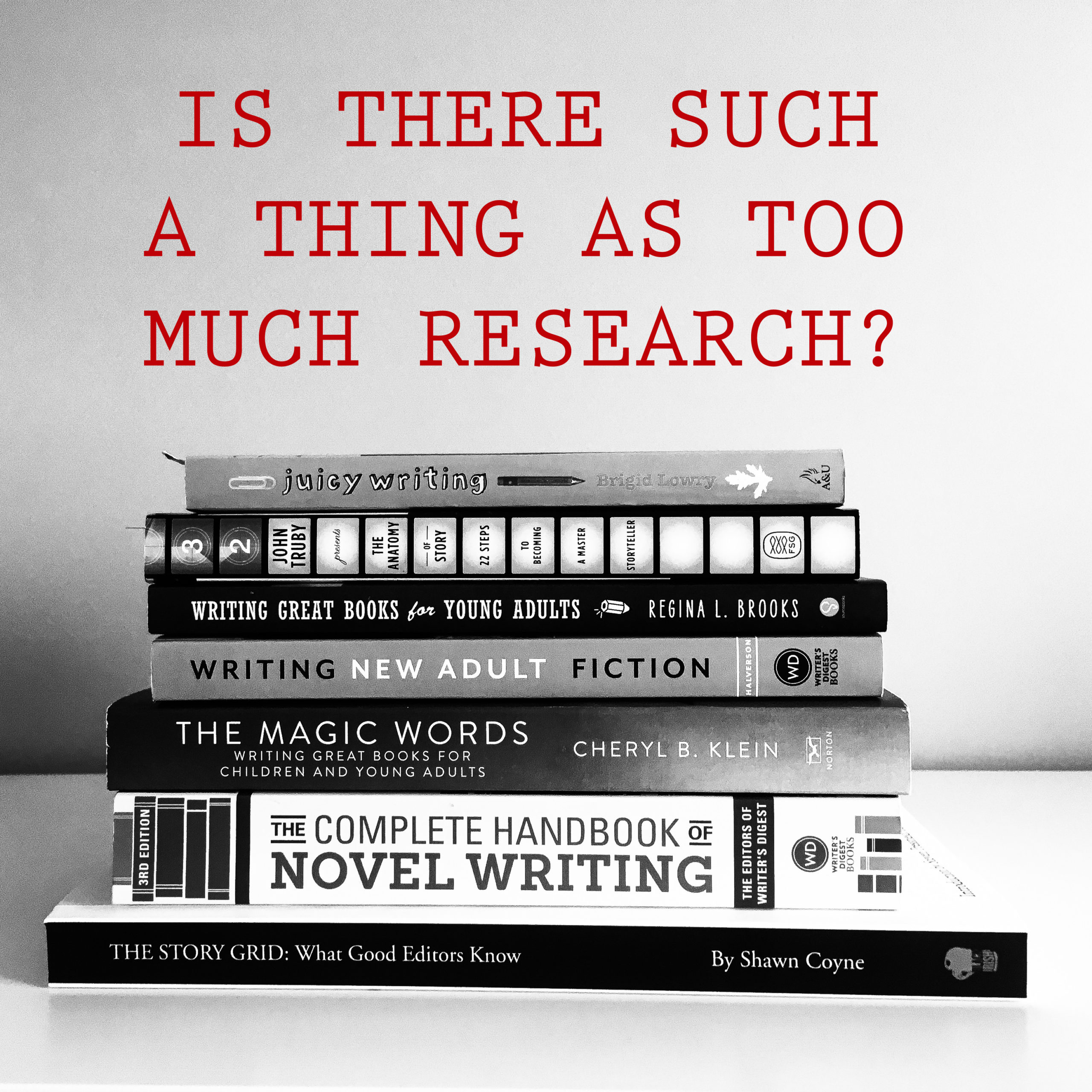
Transcript
[Intro]
Ashley: Hey everyone! Welcome back to the ‘Dear Writer’ podcast, hopefully everyone’s had a really great month since we talked to you last. If you’re a new listener, welcome. If you’re returning, welcome back!
Sarah: Yes, welcome.
Ashley: How’s your past month been going, Sarah?
Sarah: It’s been… pretty good. I’ve been editing The Price of Pandemonium and at first I struggled with some of the early chapters but in the end I didn’t need to change too much, and small changes seemed to have made it a lot more polished. So I’ve just been deepening some character emotions and making sure their thoughts are consistent with their feelings, because there’s been a few inconsistencies come up, yeah.
Ashley: It’s good that there haven’t been any large changes. That’s always a bit of a relief.
Sarah: Yeah. Sometimes you read through and you think, oh gosh, that needs a lot of work, but then with the small changes everything seems to be pulling it together more. Ya.
Ashley: That’s good.
Sarah: How has your month been for writing?
Ashley: It’s been… I think it’s been quite up and down. I started off by reading Darkness, Set us Free for the first time from the start to the end which I found quite enjoyable. There were a lot of small parts I had forgotten that were in there. Cause you remember the overall plot line and everything, but sometimes there’s little events, tiny little ones you forget, little sentences that someone says and you’re like: oh my gosh, that’s really funny, or, I really enjoyed that. But now I’m editing it which has been significantly slower. I think mostly because I’ve been really busy grant writing and everything, but also, the main problem I think I’ve been having, is whenever I try and make a small change to a sentence, it then has a massive effect on the other sentences and paragraphs that come afterwards. So it’s been a bit of a struggle when I find something that doesn’t sound right, or maybe needs to be just altered a little bit, I then have to spend what feels like an hour, just trying to make that sentence not change the meaning of the entire text that follows afterwards. Because there’s like repeated words and all of that. So it’s been… it’s been fine though. Mostly.
Sarah: Yes. I remember having those issues, having them with Darkness, Set Us Free. It’s like every single word you change you’re suddenly like, hang on a second, yeah…
Ashley: You’re like: oh, but then it kind of changes the meaning, later on… do I really want to change that…
Sarah: Yeah!
Ashley: But it does… not quite sound right… something needs to change. So you just kind of sit there, staring at your document. Tryna make it sound better. I dunno. But apart from that there aren’t any huge issues or anything, it… it’s mostly OK. I’ve been enjoying it. Yeah, a bit of a change from [The] Price of Pandemonium. The characters are definitely a lot more emotional. A LOT more emotional!
Sarah: Yes. You really see the deterioration from the first books when they’re a bit more lighthearted. And then the third book, it’s like nothing’s OK anymore, and it never will be!
Ashley: Yeah I know. That’s the most depressing part, they’ve just decided that it’s never going to get better. They’ve just resigned themselves to the fact that no, this war is horrible, this world is horrible, my life is horrible, there’s no way out, hide in the dark…
Sarah: Writing a book, it almost feels like a bit of a social experiment. You take a bunch of different personalities and put them into this awful situation, and you’re like… let’s see what happens! Turns out, they get really depressed!
Ashley: Yes, yes.
Sarah. Ah…so. I think we will move onto our question in our main discussion which is: Is there such a thing as too much research?
Ashley: I feel both of us can probably agree that research is important and you have to do it…
Sarah: Yes.
Ashley: But I guess the real question is how much do you have to do?
Sarah: Yeah… you definitely need to do some because if you don’t know anything about a character’s world, or just in general how something works that you personally don’t have experience in, then that’s going to come through and you’re going to get some readers who do have experience. And for them, that’s going to ruin the entire experience of reading your book. They’re going to look at it and they’ll probably be pulled totally out of the storyline, and start questioning your abilities as a writer, so… [Laughs] I do think some research is required to create the illusion of that experience.
Ashley: Yeah, I would definitely agree with that. It’s very similar to when I’m doing research for my job in the lab anyways, when I start a new project, I don’t just jump right in without having done any background research at all. You sort of need to know where things stand, what’s been done, what hasn’t been done, to give you a plan going forward. Which you can probably apply to a novel as well…
Sarah: Yeah, yeah.
Ashley: …doing some background reading. Even just to do with the genre or the type of book you’re writing before you even get into the actual parts of the story, and the plot and all that stuff, the setting, which you also have to research. But, the main question we were going to talk about today was, can you do too much of it? What do you think about that, Sarah?
Sarah: I definitely think you can do too much of it. I think it comes down to what is relevant, what your character needs to know, and how much you need to know in order to be able to describe the setting and describe the world. Not everything that you research—especially if you’re doing a lot of research—if you do include all of that into the book it’s going to be a bit too heavy on the information side of things. And, if you don’t, then what is your point in doing it? Are you wasting time when you could be writing? So, there is I think a line that needs to be drawn, when it comes to researching and writing.
Ashley: I… mostly agree. Except, because I research all the time for work, I don’t think you can do too much research. I always find the more you know about something, I guess from a writing perspective, the more accurate you can be in its description. But I definitely agree with what you put in. Like you should only put in the bare minimum. But if you can get a really, really good sense of what the world you’re building is, that’s great, as long as it doesn’t become your entire existence… researching.
Sarah: Yeah, I think maybe—and I’m sure you will probably agree with this as far as a research scientist perspective—is, it comes down to defining what it is you need to research. Because if you have such a broad view of… like you wanna research every entire thing, in the world that you’re creating…
Ashley: That would… that would be a bit excessive. [Laughs]
Sarah: Really struggling to think of an example. But you don’t need to include every tiny detail of how they pick up a fork, or… go to the toilet or something if it’s weird aliens that do it a different way or something. You’re not gonna [laughs] necessarily… I mean maybe you might, but that would be a very strange book!
Ashley: Probably just getting across the fact that they’re different rather than having to painstakingly go through every single type of their behavior in order to explain how they’re different.
Sarah: Although, I don’t really know how you’d go across researching that anyways…
Ashley: Yeah, I don’t… I don’t know.
Sarah: But… You get my point right? You have to define your focus.
Ashley: Yes.
Sarah: Cause otherwise you end up on these crazy tangents and it takes you forever to get back to the actual point. Kind of like what we’re doing at the moment. Goes off on a weird tangent.
Ashley: Targeted research. Targeted research.
Sarah: Strange aliens and their toileting behaviors. I don’t know why I thought of that.
Ashley: I like that that was where your mind went. You’re like, ah yes! A great example!
Sarah: [Laughing] Toileting behaviors of aliens. Yeah, I guess also, researching can become procrastination for actually writing for some people.
Ashley: Yes, yes I can see that.
Sarah: My husband Dan… he may not be 100% on board with me saying this! But, he would like to get into writing as well. But he is a person who really wants to know all the facts before setting pen to paper, and he also doesn’t have very much extra time. So, he hires out tons of books from the library. And he is developing an idea in his head, but, the impatient part of me… because I’m more of a doing person and I take a more relaxed methodology to my research. So I see all these books in the lounge and I’m like: when are you going to start this? It’s been like a year. [laughs]. And I think it also makes it bigger, the task of writing it makes it seem like, really huge, because you’re like: I’ve got all this information now; where do I start? What do you think about that, Ashley?
Ashley: I definitely agree with the researching to procrastinate. I do it at work all the time. I’ll be doing something, I’ll get stuck and I’ll you know, go sit at my desk, and I’m like: Aha! The best way to get around this problem is to spend 5 hours in the literature, reading about it, and maybe the answer will just come to me. It doesn’t ever happen that way. Or you end up going down ridiculous rabbit holes. Ugh…
Sarah: Like me with my study. I do the same thing. I’ll be like sitting there… I have to read this gigantic textbook for my study. And, meanwhile my brains trying to make all these links. But it goes down memory lane constantly as well, while I’m reading and researching and stuff. And so I’ll be reading a section on drowning, for example, and my brain will go back to the time when we were all forced to jump off a bridge in intermediate school. I’m not even kidding. And then part of me is indignant: How dare they force us to jump off a bridge? They were trying to show us how to look out for dangers in the water and all of this kind of thing. But part of that was apparently that every single one of us, even if we didn’t want to, had to jump off a bridge several meters into a river.
Ashley: I would have hated that so much.
Sarah: Yeah! So you know you get stuck down all these rabbit holes when you’re reading, that it becomes a very lengthy process.
Ashley: That happened to me literally just on Friday. So I’m meant to be lecturing from next week. And I’ve been given about 100 slides for about ten lectures of material that isn’t mine. So I don’t know any of the content and obviously it’s a university course, so I should know the content. So I’ve been going through each slide, doing a bit of research just to check the facts so I get a good picture. And I got to one, it’s about environmental… chemistry and the environment and how it’s bad. So the first thing I thought of was, aha! Chemical disasters. Those are bad for the environment. So I did some research, I found one. And then of course, I couldn’t just stop at one! So I went through like the entire history of chemical plant disasters from 1979 all the way to the mid 90s. And two hours later, I just… I got a tea, and I just said to myself, I need to stop. This is so unhelpful, I’m gonna talk to them for an hour in lecture all about chemical disasters and make no progress in any of the actual lecture content. So, yeah.
Sarah: Your students will be well versed on chemical disasters and looking after the environment!
Ashley: There are some real good ones. I will definitely get my point across. That hazardous waste disposal should be more regulated than it is, is the point. But, take us a long way to get there!
Sarah: Also on a side-note, has anyone watched Chernobyl?
Ashley: I haven’t watched it yet. I wanted to.
Sarah: I was addicted to that series.
Ashley: I want to. Although I did go down a Chernobyl rabbit hole before the show came out. I spent two hours at work, because I was learning about radiation, so obviously that’s sort of where… naturally where it went. And I spent two hours like in depth reading reports about Chernobyl, and it disturbed me to my very core. Like some of the stuff that those workers went through to like save thousands and thousands of peoples lives. And so I felt too emotionally raw to watch it. Like, I needed to calm down.
Sarah: Yeah, it’s crazy.
Ashley: But I think I’ll watch it soon. James is pretty keen.
Sarah: It’s quite a bleak series. Anyways, sorry, I’m like the queen of sidetracking.
Ashley: I’ll take us back to the point of our talk, we were talking about procrastinating, which obviously we both do. Another… I think another problem about doing research is when you just start researching, to research. Which I think also happens. You have the best intentions… it’s not necessarily procrastinating. But, I find this sometimes. I’m like: Ah! I should do some research for this. So I will research for the sake of doing it when I could probably just write it without… without it and come back to it later if I find something that I need… if I find something that is missing or that I need to check. Instead I’ll be like, no. I must research this, for some reason. I dunno.
Sarah: So I think that begs the question: When should you stop researching?
Ashley: I… I usually… despite working as a researcher, when I research our book, I’m not as bad. Mostly because I just want to write. But I think you stop researching once you have a good idea of your set—well I think we’ll talk about starting a book, is probably the easiest way. You start writing a book once you can see your setting and you know the basic structure of the world that you’re writing about, I think. You don’t need every single detail in place, you just need a rough idea so that you can describe it to someone and they can see it, through your words.
Sarah: I think, probably, there’s some things that you definitely need. Number one is that you need the rules of your world. Like are you in the normal world? Are you in a science fiction kind of world? Is it the future, is it the past? And, is that going to change for example political… um…
Ashley: The political landscape of your world.
Sarah: Yeah. So, you know, will it change any of that, and will that make the characters act differently, and how will that shape the character? So… because there’s always going to be certain things if you’re doing more like a dystopian or science fiction that is going to be different from our world. So you need to be able to pinpoint which things are different, so that you don’t… you’re not changing rules all over the place, because otherwise like the readers come into it and once you’ve set out the rules, they expect those rules to be followed through. So if you change them in the middle of the book, later, then the readers can sometimes feel cheated because that they’ve expected a certain situation, and that’s not what they’ve got.
Ashley: Yes, this wasn’t a thing! Why is this a thing now? That’s not fair!
Sarah: Yeah, so… I think that’s one important thing. The other important thing is being able to sort of visually see the space in your mind. And that doesn’t need to be the entire book. It could just be the first chapter that you start off. And you’re like OK, what is this scene looking like? And you can do that chapter by chapter. You don’t need to know the entire setting, and the entire like stage where everything’s moving and changing in order to be able to write that first chapter, right? So I think that would be the minimum basics, is: Knowing your scene, and knowing the rules. Yeah.
Ashley: Definitely. I think both very good points. Very good points. No one wants to read a book where suddenly the entire world that you set up at the beginning changes, chapter to chapter, cause the writer hasn’t decided how they want to run their little world that they’ve created.
Sarah: Yeah. I mean, you can do… that’s not to say that you can’t make a twist happen.
Ashley: Oh yeah.
Sarah: But I don’t think that you can change the rules, like you’ve gotta work within the rules in order to be able to make that twist. And also that changes the believability of it as well. Because if you’re in the normal world, and suddenly someone finds the ability to fly halfway through the book… if you haven’t been building up to that, I guess obviously there could be a weird thing that you’ve hinted to at the start, which in that case you know the rules are still in place at the start, its just that they haven’t been fully revealed. But, there’s a name for it. What do they call it? Deus ex machina? Am I even saying that right?
Ashley: Yeah… ohhh I don’t know how to say it but I know exactly what you’re talking about.
Sarah: It’s latin isn’t it? But basically that’s like you know, someone comes in and saves the day in a middle or the end, and then, everything’s OK. It’s not an effective way of closing your book.
Ashley: So now that we know, well we’ve had a bit of a discussion about how much research you do, maybe we should ask… how do you research, Sarah? When you’re writing a book. What’s your method?
Sarah: As I said before, I’m quite relaxed about the whole research thing. What I tend to do is… yeah. I sit down at the computer because I get really impatient and I wanna write. The writing’s the most exciting part for me. I don’t really enjoy the researching as much. So, I’ll sit there and try and imagine the scene. And if I can imagine the scene, I’ll start writing. If I can’t, then I might go off and do a bit of research. Especially if it’s about a specific era, or specific words that might be different to the language that I typically use, then I will do a little bit of research to try and get my headspace into that kind of feeling and bring out that particular vocabulary. Because otherwise I find it quite hard to give it that feel of… sort of putting myself into the setting. So I might do a little bit, but sort of only until I can feel that I can see the scene. Once I do that I start writing, and I find for me it’s really the editing where I’ll pick up inconsistencies, or I’ll read something specific and I’ll be like: Well, I haven’t quite explained this fully, because I hadn’t done… I didn’t have the information there. I think I need to research about this specific thing to be able to put that into the book. And doing it that way, you do come across situations where you’re writing along, and you get kind of stuck. And you’re like: oooh, I don’t know how to explain this. And that’s when I’ll go on a side path and start doing a bit of researching and then I’ll come back. So I’m quite… as you go kind of person. How about you, Ashley?
Ashley: I… I tend to do a little bit more research at the beginning. So, for those… to put this into context for the people who… well. Most of you probably don’t know this. But Sarah and I have one series that’s teen fiction based in our world, in the not-so-distant future. Most things are you know, similar to they are now. So not too much research is required. The other book we have is adult fiction. And, it’s historical fiction set in ancient Greece. So that involves a lot of research. So I think most of what I’ll talk about is about that book, just because it’s slightly more relevant to the discussion. So I usually will do a bit of research at the start. So for example if we are in a city in ancient Greece that we haven’t been in before, I will first of all research the city. Not too extensively, but to the point that I know the layout, because often you can find old maps and things. I know the layout, I know what the… where the town square is. I know where my character is going, I know the demographic of people that are there, so that once I start, then I can see the city, I know what’s going on, and you know, can write away. But, I don’t go overboard with that. So I’ll maybe read a couple of articles, look at a few maps, and then I’ll dive right into it. And then, usually I research as I go. So, you know, the character’s walking through the streets and she sees some Spartan soldiers. And then suddenly I’m like: Ah. But what do they look like? Because I’m not actually sure what they wear. So that’s when I’ll go research, come back, they look like this, blah blah blah, and she continues on. So that’s sort of how I do it. Which, yeah. It works. I don’t know if it’s the best way. But it works.
Sarah: Yeah. I remember doing a bit of research on like geography of ancient Greece. Because there’s like this narrow neck of land. And now its got like, highways and stuff all through it. And I was like: what would it have looked like back then? So I had to do a whole bunch of research, but again, I just wait until I need it. So I’ll be sitting at the start of the chapter, thinking, I can’t even see this. Because my brain kind or works more on like a… on a movie kind of basis. And so there’s scenes that pop up. And I’ll be like, scene one… [laughs] Opens with… Yeah. If I can’t see the scene, I can’t write the book! [Laughs].
Ashley: I remember one of the things I got quite stuck on was… I put our character to bed in ancient Greece. He goes into the room and goes to bed. But suddenly I just realized, what is bed in ancient Greece? Do they have beds? What do the beds look like? Are they on the ground? Are they in the air? And suddenly I was like: This is too much! I went down a massive bed rabbit hole, tryna figure out… just so I could have him… [Laughs]
Sarah: I went down a bathroom rabbit hole. I was like: do they have bathrooms? Because you think about like, medieval England, which is a total different kind of scenario. But I found it fascinating that the ancient Greece, in sort of the noble households, they actually had bathrooms. Whereas you know, medieval England, they’re still using like privvys out in the middle of nowhere. And just washing themselves with buckets, and the Greeks had baths. So… I was like, did they have baths? Yes they did!
Ashley: I went down a songbird rabbit hole as well. Because… the character’s… it’s early morning and she’s you know listening, and she hears birds. And I was like, wait. Do they have songbirds? That’s the first question. Because I’ve got to get this right. And I’m looking, and it’s very hard to tell if they had songbirds back in 400BC. Because a lot have been brought in, and live in Greece. And I was just like this is too much. I’m just going to say there was like, I heard a nice song from a bird and I’m not going to specify what type of bird it is for now, because it was taking like way too long.
Sarah: No wonder it takes us so long to write a chapter sometimes.
Ashley: Getting way too… way too into it.
Sarah: I did have a thought, actually. And I was kind of thinking about the levels of character knowledge, and how much you need to know in order to be able to write. Is your character an expert? And it’s about description versus functionality, so… Because it’s easy enough to research something and trying to describe it. But then, if your character is in a specific role, how much do they need to know about the functionality of an item or something. [Laughs]. I think that’s… those are the ones that take the longest and almost the ones that I focus on more to try and get right. It’s not necessarily how something looks, but how it functions. And I had that with our recent book with military radios. Trying to work that out was challenging! Not that I even needed to put it into the book, which sometimes I think that’s probably the one sort of scenario where you might research something slightly more deeply that what you would actually put in the book because you can’t put even a shallow level of that knowledge in, unless you know a bit more in depth I think sometimes.
Ashley: Definitely.
Sarah: Reminds me of old English essays, too. Sort of questions that they ask you at school. Like they used to have this thing for us of like, describe, explain and discuss questions. Which is, the New Zealand Certificate of Educational Achievement—that’s how they teach things. Describe, explain and discuss. And so, I think you’ve got to work out what level that your character is working on. Are they at the describe level, are they at the explain level, or are they at the discuss level?
Ashley: That’s funny. That makes sense though.
Sarah: Once you have that—yeah—once you have that, like you’ve kind of worked out their knowledge, then you can work out how much you need to research.
Ashley: I had a very similar problem like that. Because in one of our books, our characters hotwire a car. But it’s not from the perspective of the character hotwiring the car, its from someone else.
Sarah: You had to do it twice, actually…
Ashley: I had to do it twice in two back to back chapters as well! First of all I was like: how do you… how do you hotwire a car? So, wikihow has quite a good description on how to hotwire a car, and it tells you the types of cars that can be hotwired, and it also has a disclaimer: Do not hotwire a car unless it is your own car.
Sarah: [laughs]
Ashley: Which I found hilarious! But anyway…
Sarah: That’s funny.
Ashley: It’s really good. But so, it was figuring out a way for the character to describe what happens, who has no idea how to hotwire a car, how she describes someone who kind of knows what he’s doing, hotwire a car. Which was sort of an interesting thing pop up. Which I had to do twice.
Sarah: Yeah, yeah. Cause you don’t really need to go into as much depth as if you were the actual character hotwiring the car, but…
Ashley: Exactly.
Sarah: You do still need to have… make it look like he knows what he’s doing. And she’s observing that, right?
Ashley: Yes, yes.
Sarah: It’s weird the stuff you accumulate in the knowledge of writing a book!
Ashley: Sarah, well maybe we should move onto our mistakes of the month then?
Sarah: Yes, I’m so excited for this this month! [Laughs]
Ashley: Would you like to start, Sarah?
Sarah: Yes, I would like to start! Hang on, I’ll just get my little piece of paper here… [laughing]. Um, so. I had the most amazing mistake of the month. It made me cry with laughter, and then I told Ashley, and because it was such a little mistake she didn’t get it at first.
Ashley: I totally missed it.
Sarah: And I was like: That is not the level of reaction I was looking for!
Ashley: To be fair, I was in the lab doing chemistry.
Sarah: Fair enough.
Ashley: So I quickly skimmed it…
Sarah: But anyways. So it’s one of our characters sort of in our series that we’re writing, Levi. And he has a bit of a crush on this other character. But he’s quite a gentleman, and it’s really still at that kind of… they’re still a bit shy so, I was quite surprised to come across this particular sentence. He was describing how she looked, and he said, “But her leggings we ripped at the knees.” And it was kind of like, I knew what it meant. It was supposed to be “her leggings WERE ripped at the knees.” And then it goes on to talk about her alluring patches of skin… um. Cause her outfit was kind of in shambles. But, I just… I couldn’t get over that mistake. Her leggings WE ripped at the knees. Like he was involved in the ripping!
Ashley: Like what were you doing?
Sarah: And, what was even weirder, was that it seemed kind of kinky, because you know, the knees isn’t really a spot where you’d typically try and get at someone! [Laughs]
Ashley: Oh my god.
Sarah: I was laughing so hard!
Ashley: Yes once I realized what was wrong I was just like: OH MY GOSH. This is amazing!
Sarah: Especially that it’s like: we. So it’s not even just him.
Ashley: It was a joint effort.
Sarah: They’re desperate. [Laughs] Would you like to enlighten us on your favorite mistake of the month?
Ashley: Sure. I’ve actually found a couple since we did this outline. It’s actually an amusing auto-correct that happened. So… I think it’s Grace again, she’s whispering to someone. And it was supposed to be ‘whispered furiously.’ You know, like *demonstrates a furious whisper* But it autocorrected to ‘ferociously’! And I was like, Oh my god! It… the total wrong connotation! And I can’t even imagine someone whispering ferociously either!
Sarah: [In background] Ferociously…
Ashley: So it was… that was one of my favorites that I found. I was like oh my gosh I don’t think this is meant to be that! So watch out for auto-correct, people.
Sarah: Oh dear. Another thing that I had which wasn’t really a mistake, but it’s quite hilarious cause it… I guess it grew from a mistake. Kind of. When we first started writing again, and I was editing The Price of Pandemonium the first time round, I realized that there’s quite a few references to people assuming that there is a cat. Someone moves quietly and I don’t know, the soldiers are just like, must have been a cat. And then I was like, you know, it would be funny if one day it actually was a cat. So, I created this cat. We call him Mr. Tibbles. He’s not always the same cat—but it’s just you know. That’s what we’ve named all the cats in our book. It’s now just Mr. Tibbles.—I was editing this section recently, where we’d added in a bit to try and change the tension, because part of the book closer to the end didn’t feel like it had enough going on and enough action in it. So we added in this scene. So what happened was that it then changed it from we had a really slow-paced chapter, and went to like break-neck speed within, not even like a paragraph. They’re just chatting, they’re really calm. And then it’s like BAM! And I was like well… I can understand that happening, because they’re kind of surprised. But then at the same time I wanted to try and build the tension. So I was like, well maybe they can almost see something, then think that it’s nothing, and THEN have something happen, so it kind of builds that tension. So I added Mr. Tibbles in again. [Laughs].
Ashley: I love Mr. Tibbles.
Sarah: I like Mr. Tibbles too.
Ashley: So I also had another amusing auto-correct mistake. It’s been most of my mistakes recently. So I had… soldiers were supposed to be pursuing some characters. But when I actually looked closer at what word was written, it was ‘perusing’, instead of ‘pursuing’. I know! So I felt like the soldiers were like window-shopping our characters in a mall or something. They were perusing us. I was like, oh no. Oh no. This is great!
Sarah: Which one should I take out with my gun? Ummmm…
Ashley: Maybe that one!
Sarah: Maybe the one on the left. Nah, nah, that’s not quite my style…
Ashley: Guess I’ll reiterate: Watch out for auto-correct!
Sarah: Anyways. Did you have anything else?
Ashley: I had another… I do. I found another one recently. So do you ever when you’re reading through stuff that you’ve written, try and imagine what you have written? So say it’s like, she… I don’t know… catapulted herself over the fence. And you’re like, it’s a bit aggressive, but I can let that slide, you know? So I came across one when I was editing before. And originally, I thought nothing of it. It was: “I helped Grace get into her heavy pack.” And then I thought about it, and all I had was this vision of Grace being like shoved into a backpack and zipped in!
Sarah: Oh no!
Ashley: And then I couldn’t get past it. I did rewrite it. And “I helped Grace put on her heavy pack.” But, I just… you know I was like it would probably be fine, no one would notice. But I noticed. And all I could imagine was her being put into a back pack. And I had to change it.
Sarah: It’s one of those ‘literal’ mistakes.
Ashley: Yeah!
Sarah: Most of them I can kind of work out which ones I’m being too… facetious about. But certain things begin to jump out at me when I’ve been editing too long. Because I start reading everything totally literally. One of these things has been: His face dropped.
Ashley: Yes.
Sarah: It’s a fine sentence! Nothing wrong with it. I’ve seen it written in a billion other books, no problem, but then, when you’ve edited something so much, eventually you just start getting these visions of someone’s face literally like dropping off, onto the ground. Or his eyes dropped is the other one. Woooonk!
Ashley: Just… falls!
Sarah: Well clearly I was just getting a bit too… edited out.
Ashley: You like needed a break from editing.
Sarah: I can’t wait till we start writing again! I’m getting so sick of editing.
Ashley: Me too. Me too.
Sarah: I can’t stop seeing weird things. And then like, when you word search something? Often I’ll edit out ‘that’ or ‘just’ for example. When you go through an entire document, for ‘that’, it comes up so many times that after a while you start seeing the word differently. And you’re like: That. Tha-t. Th-at. That’s a really strange word! I’m sure every writer has had this issue before, but certain words, when you look at them so much… they’re just… really, really strange.
Ashley: My issue is for some reason, the word ‘friend’. Whenever I look at it, I just find that it sounds longer than it actually is. And I can’t get past it! I don’t know what’s wrong and I’m always like: is it spelt right? I feel like it should be longer. But it’s not! And so I always have to—it’s really terrible—I always have to google the spelling to make sure it’s right! It’s really embarrassing. But speaking of over-editing, I do have a cautionary tale which I discovered. So, it’s the New Zealand election coming up, ah, in September. And so we were all mailed out our enrolment… our enroll to vote papers. So it sends out… You’re enrolled to vote in this electorate. If you’re not, then please fill in you know… this enroll to vote form, and mail it back with the signed declaration. And when I looked at the declaration, there was a spelling mistake and I couldn’t get past it. It was meant to say, all the information I have provided is true and correct. Except, they spelt provided wrong, and instead wrote ‘privided’. Like, P-R-I-V-I-D-E-D. And it outraged me. Because, they have had this document for like three years!
Sarah: Probably longer. It’s probably from previous elections.
Ashley: Before they sent it out. It’s been three years… there’s three years between elections. Did no one read it? Did it not underline it on Word? Because it auto-corrected for me, and when I tried to write the mistake like in our show plan, I had to un-do it, because it was so incorrect. You’re the Government. You should be able to spell the word ‘provided’ correctly in a declaration. And then I was like, is that declaration even valid then? Like…
Sarah: Who knows, right?
Ashley: Cause it’s not even have you provided… what even is privided? I don’t know. Anyways…
Sarah: I also had a similar issue. So, as I said, I’ve been reading basically cover to cover this gigantic textbook. It’s a nursing textbook and so obviously some information is quite important to peoples livelihoods. I came across the worst mistake I have ever seen in a textbook. I come across grammatical and spelling errors on the regular in these textbooks, and I just skip past them now. It used to frustrate me and the editing part of my brain is always just like: Oh yeah. Well, that’s wrong. THAT’S wrong. Whatever!
Ashley: Like I can’t change it.
Sarah: Anyways, this one thing wasn’t a grammatical error. It was actually a factual error about donating blood…
Ashley: That’s bad!
Sarah: From one blood type to a different blood type. Like, if you donated blood to that blood type, you’d cause like… they call it a severe hemolytic reaction, where your blood cells clump up because it’s the wrong type of blood.
Ashley: Oh my god!
Sarah: And you know, it can cause you to go into kidney failure, all this other stuff to happen. You can die within 7-12 days. And this information was wrong. And so, initially I started doubting myself. I was like, well have I got it wrong? You know like, this is in a textbook! And I was like, but that means that for years I’ve been operating on this wrong assumption, and I’ve been checking bloods to go into people… and… so I was understandably kind of panicked.
Ashley: Fair enough, I’d be panicked too.
Sarah: I had to look it up in several textbooks. I got out all my other textbooks, looked on the internet, even though I was fairly certain I was right. But at the same time, I was slightly disturbed. Turns out, I was right. I wrote an email to the editor. This random lady in the US.
Ashley: Oh my gosh, did she reply?
Sarah: I looked up her university email and was like: *snobby voice* I have spotted a concerning error! [Laughs]. I was THAT annoying person!
Ashley: But it’s in a textbook though. People learn from that! You’re teaching them wrong!
Sarah: I know! Apparently they’d already changed it in the next edition. But…
Ashley: Oh good. Good.
Sarah: She was quite thankful and quite happy that I contacted her. So that made me feel better because I felt like I was being you know that really annoying person who’s like: Ahem! Excuse me I’m sorry but you’ve got this wrong! So… so that was good. But at the same time the first email that she sent back was borderline… I almost couldn’t understand it because there were so many errors in her email. And it’s like: Oh my God! You’re an editor! But it was… she seemed like a very nice person and I know from experience that when you’re writing emails, sometimes it doesn’t matter quite as much even if you are a writer or an editor, you’re just like: Ah, whatever… it’s not a big deal. She probably didn’t think much of me, a random nurse. She probably didn’t care that much.
Ashley: She was probably like, oh she won’t notice…
Sarah: But yeah I was like, wow. I pull you up on an error and this is email I get back. I’m sorry. It’s a bit of a double over to my coming up blog post, because that annoyed me so much. Anyways, we should probably wrap this up I think?
Ashley: Yes, so if any of you guys have a mistake of the month you want to share, email us… you can email it in. You can contact us on our website lindersoncreations.com. I’d love to hear some of your mistakes instead of rehashing over all of ours. They’re funny though.
Sarah: I’m really curious to see what things people would come up with. So if you do want to email in, we’d be so excited to hear from you.
Ashley: Yes. Also that. Next time on Dear Writer, we’re going to be talking about ‘The Dangers of Over-editing.’ Which should be an interesting discussion.
Sarah: Yes.
Ashley: I think both of us feel like we might be in that phase right now!
Sarah: Yup. It’s a very fine line for me at the moment.
Ashley: So I hope you all enjoyed todays discussion, and if you want to know anything more about us, or our writing projects, you can visit us at lindersoncreations.com, or on Instagram, or on Facebook.
Sarah: Yes! And I have been more active on Instagram. So there’s more to see recently, which is exciting. Anyways, happy writing everyone, and we will see you all next time!









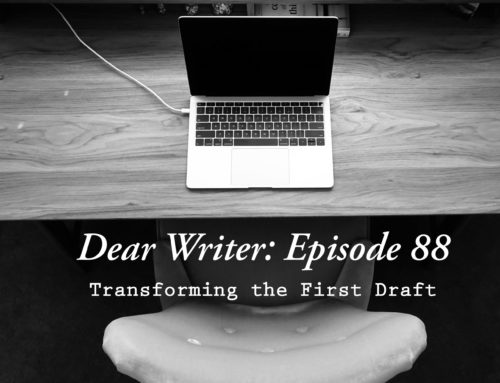
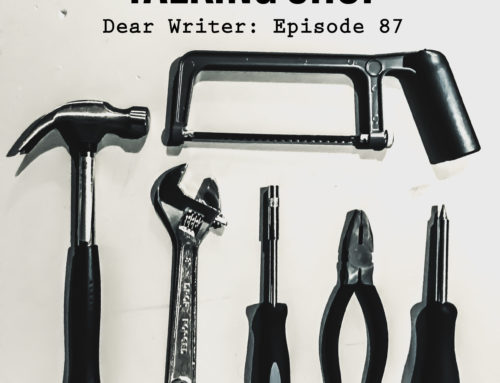

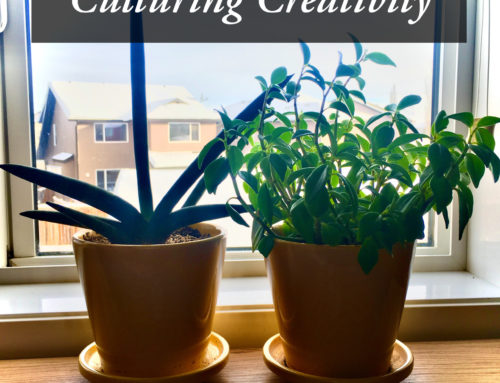

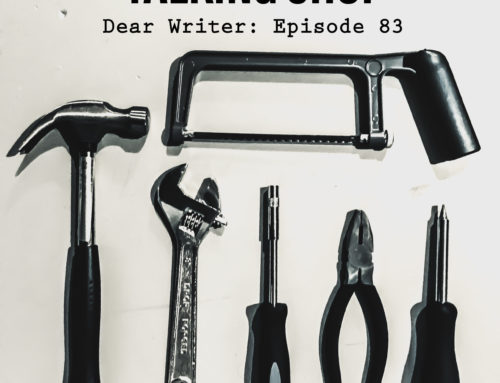


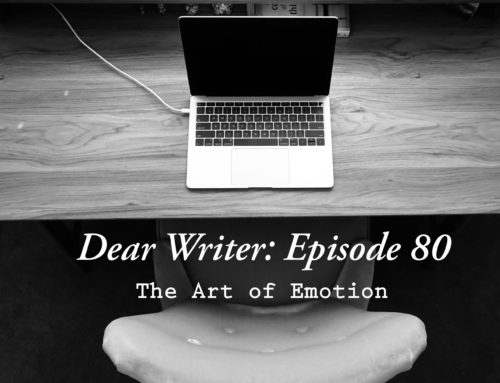
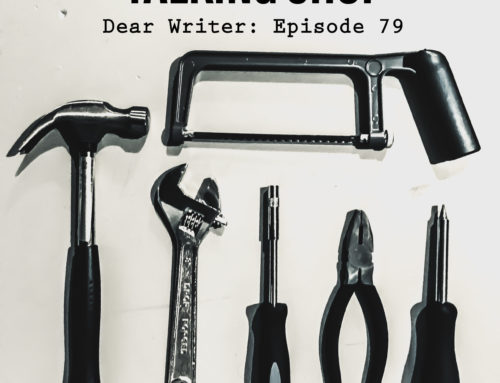
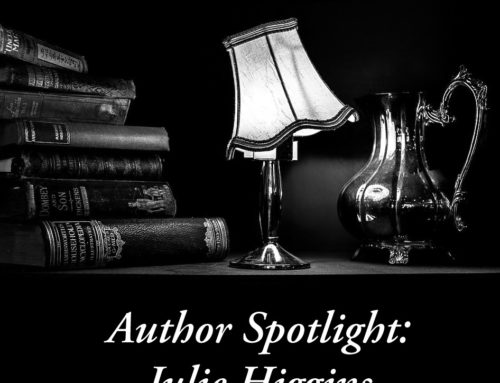
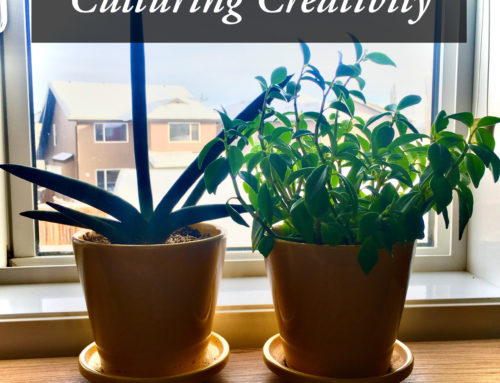
Leave A Comment